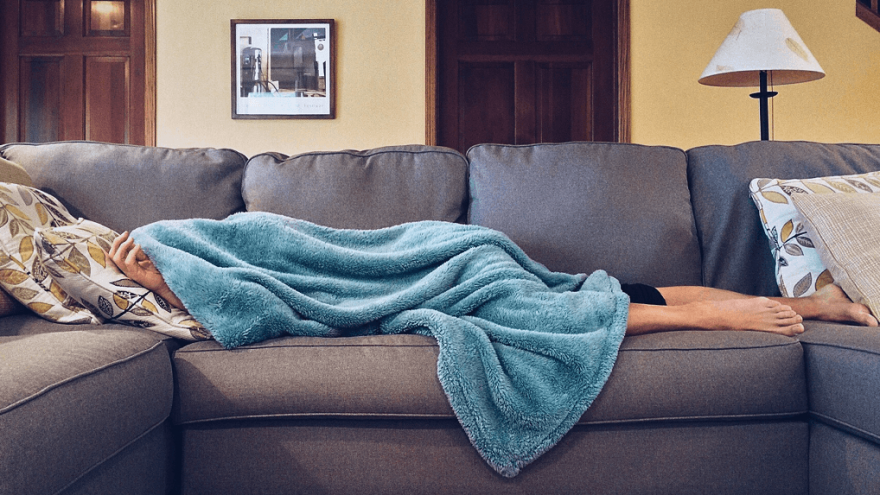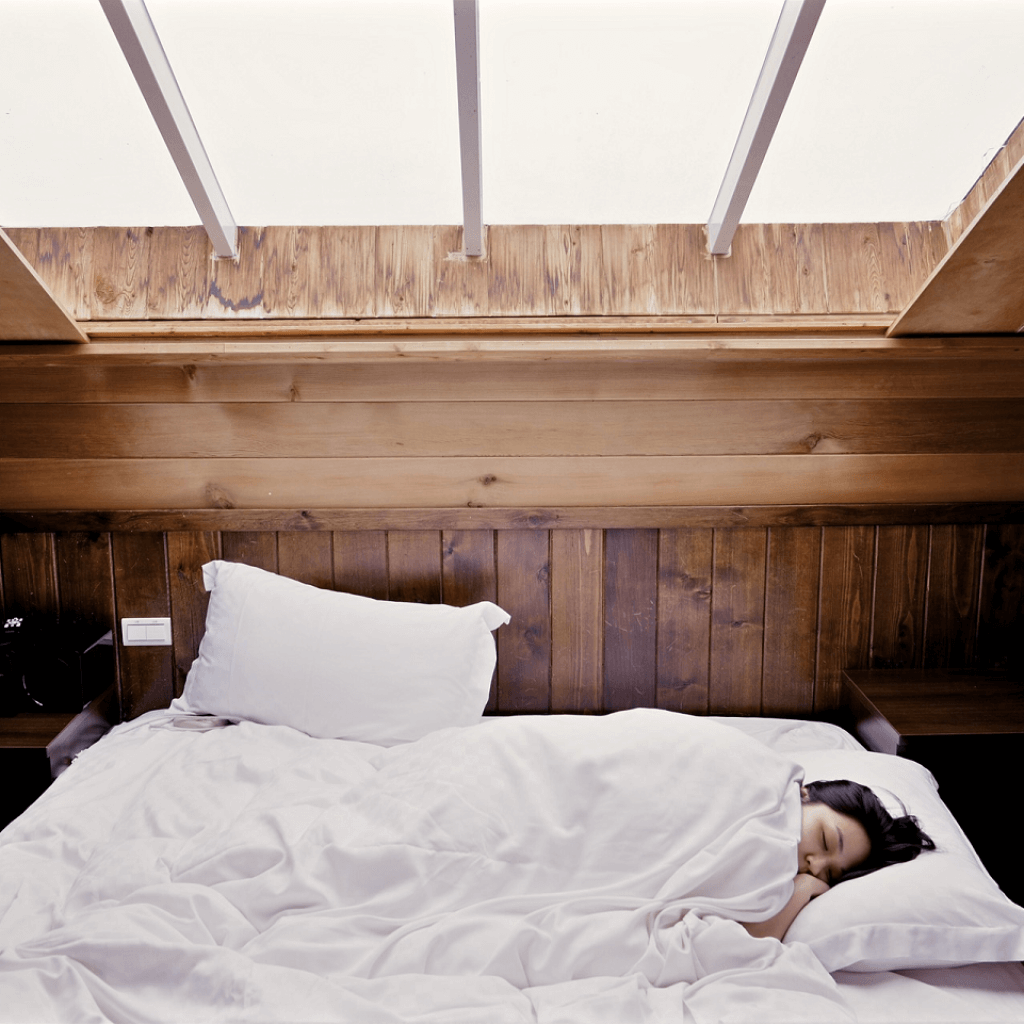The Impacts of Constant Sleep Deprivation on Running Performance and General Health

A lack of enough, good quality sleep can be debilitating. Just ask any new parent. Days, weeks and months of limited or interrupted sleep can wreak havoc on not only your physical functioning but your emotional and mental well-being too. And while not all of us have recently welcomed a new bundle of joy into our lives, hectic schedules and stressful jobs mean that most of us, at some point or another, don’t get enough shut-eye.

For runners, this can be especially frustrating. Because trying to balance the responsibilities of family, work and a household with the rigors of consistent training can be tricky enough, let alone doing it with tired, bloodshot eyes.
So what exactly are the impacts of sleep deprivation on running performance? And is it wise to try and push your body to run during high-stress periods when you’re not getting enough sleep? Here’s what the experts have to say.
Why is (enough) sleep important?
First of all, let’s just remind ourselves why we need enough sleep. In addition to topping up our energy levels, sleep also allows our bodies to recover and rebuild after strenuous training sessions. “Sleep is a restorative process and, during the night-time hours, the repair processes are hard at work,” says general practitioner, Dr. Juliet McGrattan. While muscles relax, thereby increasing blood flow, growth hormone levels also peak while we’re asleep in order to initiate tissue growth and repair.
It’s clear to see, then, that enough sleep is vital, especially for athletes.
What happens when we don’t get enough sleep
But what happens when we don’t get enough sleep? How will this impact our running performance and general functioning? While, according to McGrattan, short periods of inadequate sleep are less likely to have any serious negative health impacts, constantly being short on sleep is not ideal. It may even lead to the following:
- It may become harder or impossible to reach the time- and distance goals that you’re aiming for
- Your perceived effort may be higher during workouts, i.e. the same workout may feel harder after less sleep
- You’ll most likely take longer to recover after your training sessions
- You’re reaction time, focus and concentration may be lowered, thereby increasing your chances of injury on the run
- Your immune system may be compromised, making you more susceptible to cold and flu bugs
- Levels of cortisol, also known as the “stress hormone”, may rise. In fact, a 1999 study published in The Lancet found that the hormone levels of 11 young men (all between the ages of 18 and 27) resembled that of 50 to 60 year-old males after being restricted to only four hours of sleep per night for six nights in a row!
- Mental issues, such as anxiety and depression, are more common in individuals who suffer from a long-term lack of sleep

- A lack of enough sleep has been linked to weight gain, increased insulin resistance and a greater risk of developing type 2 diabetes and being overweight or obese
- Some studies have linked a lack of sleep with an increased risk for developing heart disease
How much is enough?
But how much sleep is enough? Surely there isn’t a magical number that can work for everyone right across the age- and training spectrum? No, there isn’t. Take, for instance, Paula Radcliffe, who, at the height of her running career, got nine hours of sleep per night, plus a two-hour nap in the afternoons. Then compare that to the four hours of sleep per night that endurance junkie, Dean Karnazes, reportedly functions on. Director of Track West, Skip Stolley, feels that most runners fall in between these two extremes. “A runner who’s running every day and training for a marathon should be getting a minimum of eight hours of sleep,” Stolley says. Dr. William O. Roberts agrees. “Although sleep needs are individual, a person training for a marathon generally needs more sleep than someone who isn’t,” he concurs.

And if you’re really unsure of where on the sleep requirement spectrum you fall, try this easy experiment by Professor Frisca Yan-Go, director of the UCLA Sleep Disorders Center. The next time you’re on vacation, go to bed at the same time every night and wake up naturally each morning. Don’t let someone wake you and don’t set an alarm clock. By Day 4, you will have paid off your sleep debt and should wake up feeling refreshed. Take note of the number of hours you slept the night before that, i.e. during Night 3 – this should be your sleep goal every night.
Tips for getting enough sleep
And while, admittedly, this may be a lofty goal for new parents, there are ways in which you can help set yourself up for sleeping success:
- Settle into a consistent sleep-wake schedule. Go to bed and wake up at more or less the same time every day, even on weekends.
- Establish a positive pre-sleep routine. Ban electronic devices from your bedroom and take a tech-break of at least 30 minutes before turning in. Do 10 minutes of light stretching or meditation right before going to bed, and, once in bed, contract and release your main muscle groups one by one, starting at your feet.
- Avoid afternoon naps if you have trouble falling asleep at night.
- Invest in a comfortable, supportive mattress and pillows. The National Sleep Foundation recommends replacing your mattress every nine to ten years.
- Make your bedroom an attractive space that is inviting for sleep. Also consider investing in blackout curtains, ear plugs, “white noise” machines and a fan or other devices to help you sleep if required.

A necessity, not a luxury
In the words of Professor James B. Maas, author of the book Power Sleep, “sleep is a necessity, not a luxury, especially for athletes.” And while nights with limited or interrupted sleep happen to the best of us, don’t let it become a habit. Make an effort to catch up on lost sleep during the weekend and set some strict bedtime rules to help ensure that you get enough rest during the week. Your body deserves it!
Sources
- , Running on No Sleep: How it Effects Performance on Race Day and in Training, Online publication
- , Chasing Zzzzs, Online publication
- , Sports Science Update: Sleep Deprivation And Running Endurance, Online publication
- , Why getting enough sleep is crucial for runners, Online publication
- , Impact of sleep debt on metabolic and endocrine function, Scientific journal
- , Healthy sleep tips, Online publication
Latest Articles
 Is Running on a Treadmill Easier Than Running Outside?Runners have their own preferences, whether it is treadmill running, running outside on the road, or exploring trails. So...
Is Running on a Treadmill Easier Than Running Outside?Runners have their own preferences, whether it is treadmill running, running outside on the road, or exploring trails. So... Is It OK to Use Trail Running Shoes on the Road?While trail running shoes can be used on roads, especially in situations where a runner encounters mixed terrains or pref...
Is It OK to Use Trail Running Shoes on the Road?While trail running shoes can be used on roads, especially in situations where a runner encounters mixed terrains or pref... How to Fix Sore Quads After Running?Rest, ice, gentle stretching, and over-the-counter pain relievers can help soothe sore quads after running. Also, ensure ...
How to Fix Sore Quads After Running?Rest, ice, gentle stretching, and over-the-counter pain relievers can help soothe sore quads after running. Also, ensure ... 10 Fruits With The Most Electrolytes to Replace Sports DrinksThese fruits are high in electrolytes such as potassium, magnesium, and calcium, essential for hydration, muscle function...
10 Fruits With The Most Electrolytes to Replace Sports DrinksThese fruits are high in electrolytes such as potassium, magnesium, and calcium, essential for hydration, muscle function...

